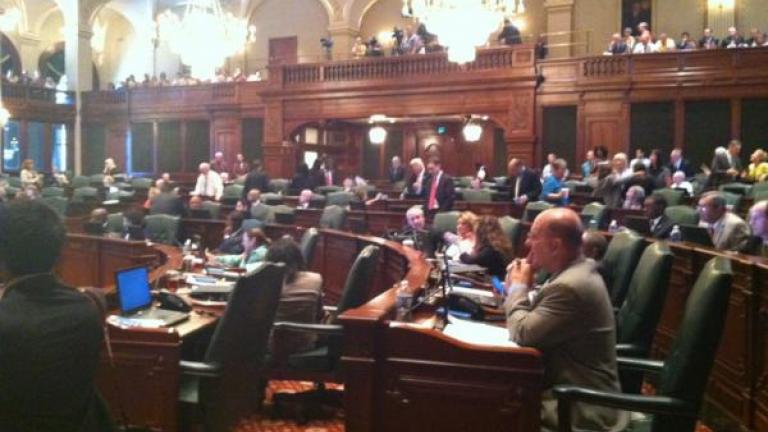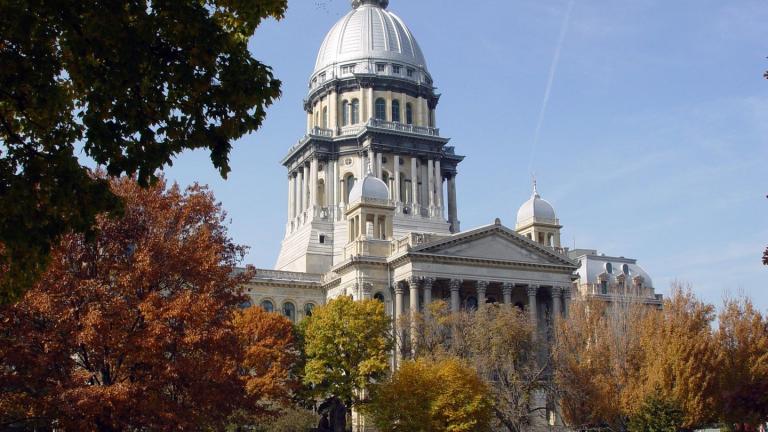The video cannot be displayed.
"We all look like idiots," said Rep. Daniel Biss, a Democrat from Skokie.
It may have been the most honest assessment of the day -- a day full of bluster, speeches, but in the end, very little substantive accomplishments.
The much anticipated special session began Friday morning as legislative leaders met with Gov. Pat Quinn in his State Capitol office. It was the first such meeting in two months. Republican leaders left the meeting expressing the same sense of frustration they've had since the start of the summer, indicating they were no closer to agreement with Democrats on major pension reform.
Moments later, by a vote of 100-6, the House voted to expel indicted Democratic State Rep. Derrick Smith. It was the first expulsion of a state legislator in 107 years.
"Mr. Smith is hereby removed from the House of Representatives," said House Speaker Michael Madigan immediately after the vote, instructing the clerk to remove Smith's name from the rolls.
House Majority Leader Barbara Flynn Currie noted that a House panel had found Smith guilty of taking bribes. And she said that while Smith may be innocent until proven guilty in the court of law, the process of expulsion did not require due process.
"Using one's office for personal gain, not for the public good, is an affront to the core responsibilities of every legislator," Currie said. "I can think of no greater breach of the public trust."
But some saw the move as superfluous, as Smith could win reelection in November and get his seat back.
"This is a dog and pony show," said Rep. Mary Flowers, a Democrat from Chicago, who wondered why the vote was taking place before the election.
On the pension front, onlookers were thrown a bit of a curve ball. Word got around that the House would take up a bill to abolish pensions altogether for future lawmakers, starting in 2013. In a hearing, Currie acknowledged the move would save only $111 million over 30 years - a fraction of a percentage of the pension debt. But, she said, it would set an example and show bond ratings agencies that the state could come together on a pension reform plan. Republican lawmakers called it "a disgrace," and a purely political maneuver that wouldn't solve anything.
By a vote of 53-52, the House adopted the "no pension" amendment to an existing bill, but failed to take a vote on the full bill. The Senate had already left for the day - ensuring that the special session would end with very little resolved.
Republican leaders were quick to blame the governor for the political theater. Senate Minority Leader Christine Radogno accused Quinn of "a catastrophic failure of leadership."
Later in the evening, Quinn again pointed his finger at Republicans, accusing them of being unwilling to compromise on even small pension reform, and saying that he would start a new "grassroots" strategy to get the public behind major pension reform. He called for more "political fortitude" in the state legislature. Watch the following video to hear more from Quinn:
The issue that continues to ensnare both sides in gridlock is the "cost shift," or the idea of shifting pension costs from the state to local suburban and downstate school districts. Though the governor has proposed a 12-15 year phase of the shift, Republicans have dug their heels in firmly against it, saying it would lead to a huge property tax increase for downstate and suburban voters.
On Thursday, during Republican Day at the Illinois State Fair, GOP officials turned their ire toward Madigan, saying that nothing would change in Illinois until he lost his power. The Republicans would need to gain six seats each in the House and Senate. But that's something even Republicans have acknowledged isn't very likely to happen.








